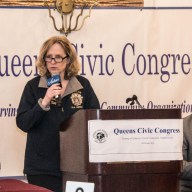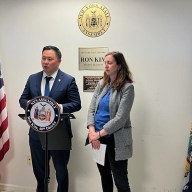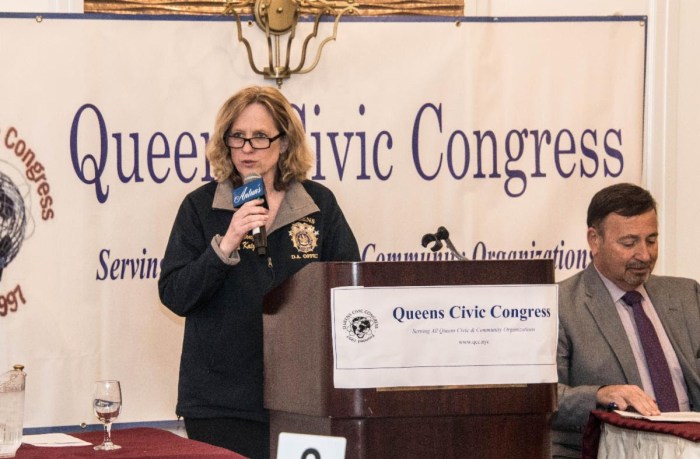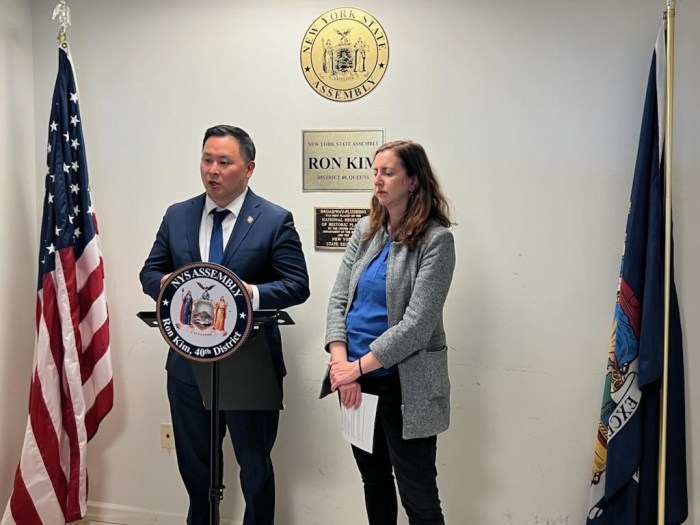By Dustin Brown
So are you bearish or bullish?
Although the stock market’s bearish doldrums have left many a coffer bare — and many an investor wincing — Sam Stovall is bullish and proud.
Stovall, the chief investment strategist with Standard & Poor’s, offered an uplifting perspective on the sluggish economy during his keynote address Saturday at the Sixth Annual Queens Finance Fair at Queensborough Community College in Bayside.
“There are reasons to be optimistic, at least in the long term,” he declared, capping off a day of seminars and discussions designed to help Queens residents better manage their money.
Sponsored by the TimesLedger Newspapers, the Financial Planning Association of New York, the AARP and Queensborough Community College, the event offered advice to put people onto solid financial footing at a time when many are simply struggling to survive.
Sometimes timing is everything, and the stormy economic clouds still carry a silver lining. For instance, right now is a terrific time to buy a house.
“It’s making the money in the first place that is the issue,” said Wyatt Rushton, the president of the Financial Planning Association. With interest rates at record lows, he said, “you could probably buy more house today than you could before.”
Seminars covered topics ranging from insurance and retirement to family budgeting and cutting down tax bills, while booths representing financial companies and organizations gave attendees a chance to consult with advisors one-on-one.
Exhibitors included Accion New York, American Express Financial Advisors, Chase Manhattan Bank, Citibank, Dime Savings Bank, the Forest Hills Financial Group, Flushing Savings Bank, Independence Community Bank, Mid-Atlantic Securities, New York Life, Queens County Savings Bank, Smith Barney, the Social Security Administration and Washington Mutual.
Sometimes financial planning comes down to something as simple as putting some money away and then forgetting about it.
“Even if it’s a minimal amount of money, pretend you don’t have it anymore,” advised Rosemarie Cola, an advocacy coordinator for the AARP in Jackson Heights.
Sky Davis, 34, and her husband already do just that: Although both have full-time jobs, they only live on his income.
“We bank my salary, and all our bills and expenses, we use his for that,” Davis explained as she waited for an affordable housing seminar to begin. “We try to make believe like we only have one.”
With those habits the couple was able to save enough in a year to buy a co-op in Bayside, and they are now saving to purchase a house where they can raise a family.
But once that money is secured, the next big question is where to invest it.
That’s where Stovall came in.
The bear market that ended on Oct. 9 was the deepest since World War II and the second longest in history, having lasted 31 months.
But those grim statistics bear good news in that all sectors and industries have historically posted gains 12 months after a bear market’s end.
“History is on our side if we’re coming out of a bear market,” Stovall said.
For those who are disturbed by the slow pace of the economy’s recovery, he offered an analogy.
“The economy is sort of like a fat guy jumping on a diving board,” Stovall said — the heavier it is pushed downward, the faster it will spring back up.
But the economy is not bouncing back as rapidly as some would like because its fall was not a particularly severe one, he said.
In the end, what it may all come down to is mindset — something that has been severely damaged by the economic tumble.
“Psychology is absolutely horrible for investors,” Stovall said. “Once we improve on our investors’ psyche, we are likely to see an improvement in the overall economy.”
Reach reporter Dustin Brown by e-mail at Timesledger@aol.com or call 718-229-0300, Ext. 154.






























